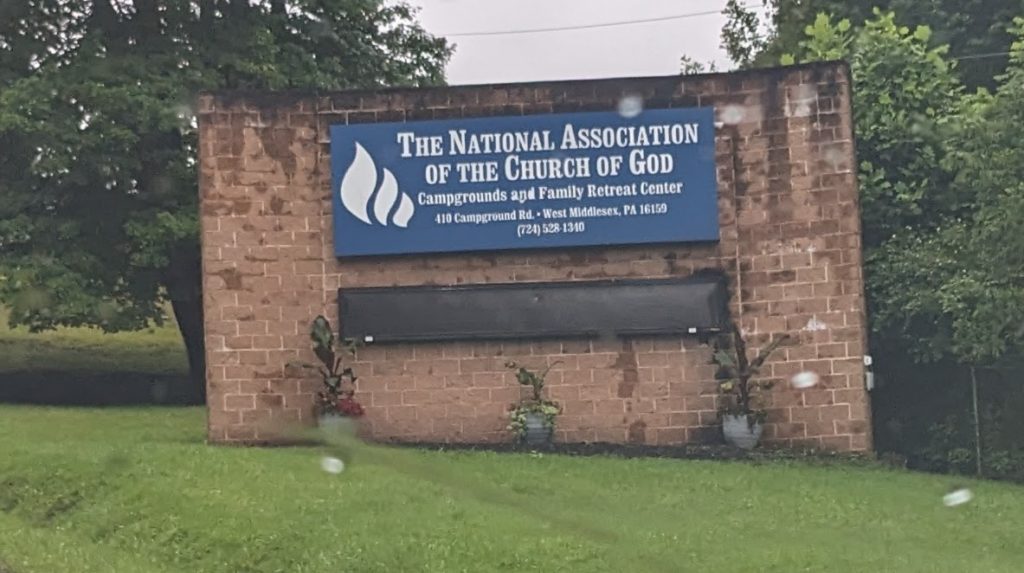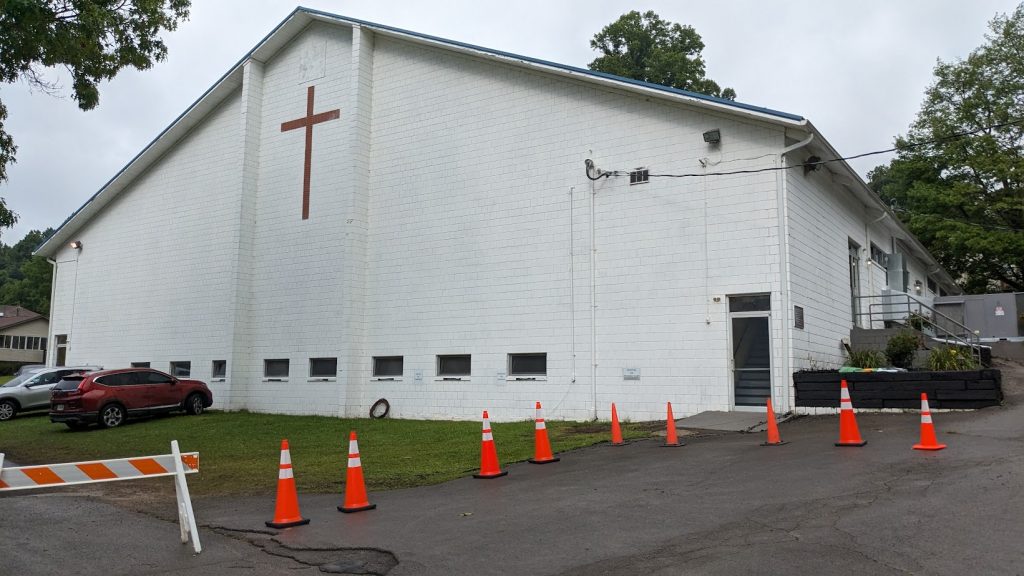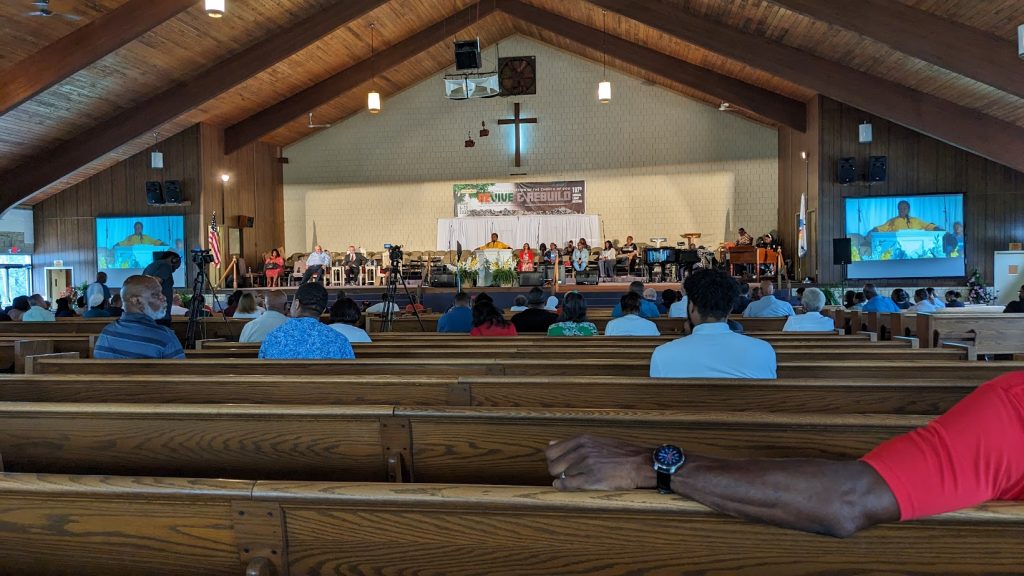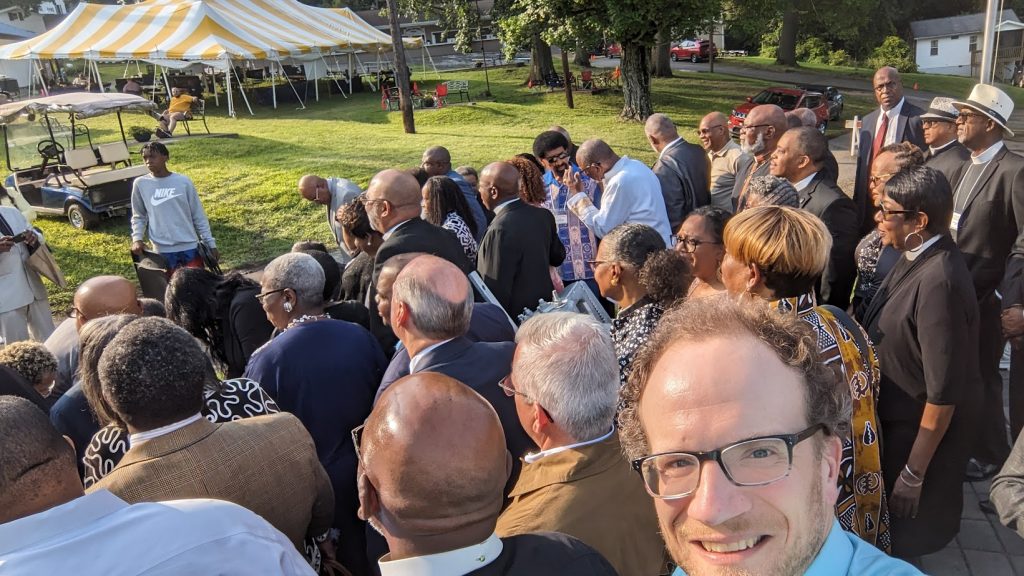“Watch out for false prophets. They come to you in sheep’s clothing, but inwardly they are ferocious wolves. By their fruit you will recognize them. Do people pick grapes from thornbushes, or figs from thistles? Likewise, every good tree bears good fruit, but a bad tree bears bad fruit. A good tree cannot bear bad fruit, and a bad tree cannot bear good fruit. Every tree that does not bear good fruit is cut down and thrown into the fire. Thus, by their fruit you will recognize them.”
Matthew 7:15-20
These words from Jesus get to the heart of the matter: our attitudes and intentions are of utmost importance. The results of our actions are significant. Knowing Jesus, really knowing the heart of Jesus, is the crucial test of our discipleship (see verses 21-23).
A serious phenomenon has been taking place within Christianity, and specifically American Evangelical Christianity, over the past several years. This phenomenon is called “deconstruction,” a word that is often tossed around without much concern for either the people experiencing it or the reasons for which they are experiencing it. In this sense, “deconstruction” is much like several other words in modern society – words which have real meaning for those who describe themselves with these terms, but words which have been twisted and misused by others. (Another example is “woke,” but that’s a different discussion.)
To experience deconstruction is, according to one Baptist Reformed theologian, “apostasy.” A newly published book calls deconstruction “a postmodern process of rethinking your faith without regarding Scripture as the standard.” (Ah, there’s another twisted word: “postmodern.”)
There is much, much more nuance to the experience of deconstruction than this definition lets on.
Deconstruction is not a bad word to me. It is not apostasy (wandering away from the faith). It is not the practice of jettisoning the Bible and determining one’s own truths.
Deconstruction can be a faithful response to spiritual growth. Deconstruction can be a faithful response to poor construction.
Here is a technical definition from Merriam-Webster. Deconstruction is:
a philosophical or critical method which asserts that meanings, metaphysical constructs, and hierarchical oppositions … are always rendered unstable by their dependence on ultimately arbitrary signifiers
In a sense, deconstruction in the Christian world can be compared with a reaction to the song lyric “for the Bible tells me so.” Yes, Jesus loves you and me, and it’s certainly appropriate to believe that truth because it is scriptural. But building a spiritual system on certain principles simply because the Bible says so – or because a parent, a pastor, or a denomination says so – is not always satisfactory. For those who deconstruct, these authorities appear to be “ultimately arbitrary signifiers.”
It’s as if a house of cards has been built, and up to this point the house has been pretty sturdy. But after inspecting the foundation carefully, people who deconstruct are finding that the structure is not stable. It needs to be rebuilt in order to meet the challenges and opportunities of a new day.
Part of My Story
I know deconstruction is a real experience for many people in the Christian world, because I am one of them. I have experienced deconstruction and, I believe, a reasonable amount of reconstruction in my Christian faith over the years.
This process began for me back in my early adulthood, especially after I graduated from college and then continued my education, first as a student of mathematics and then as a seminary student preparing for ministry. I never stopped loving Jesus or the message of scripture. I just began to peel away the layers of a Christian worldview that revealed itself to be built on shaky assumptions. Truth be told, the signs of this deconstruction were evident even in my high school years.
Let me give one example. When I was a teenager, my high school youth group went on a trip to a week-long youth retreat in another state. On the way there, we stayed overnight on a Saturday at another church and then participated in their Sunday morning activities. During the Sunday school hour, we attended that church’s class for students our age.
I have a vivid recollection of the discussion led by the teacher that morning. She asked, “How long did it take God to create the world in Genesis 1?” We all knew the answer: “six days.” Then she asked, “And what does the Bible say about what a day is like to the Lord?” This one was a little tougher, but the answer was: “With the Lord a day is like a thousand years, and a thousand years are like a day” (2 Peter 3:8). Then the teacher made her main point: “So then, six days of creation, and a day is like a thousand years. That means the world is only six thousand years old!”
My mind reeled. This was silly. This was not scientific. This wasn’t even logical. This wasn’t what the Bible was meant to be used for – somehow proving a “young earth” theory. This was not a good foundation for a Christian worldview.
That moment was, perhaps, the beginning of my process of deconstruction.
One of my most beloved Christian teachers, Father Richard Rohr, often speaks about three movements in the spiritual life: “order, disorder, and reorder.” Deconstruction is related to that “disorder” movement. It’s what people experience after their initial system of “order” proves to be unsatisfactory. It is very much possible to move from there into “reorder,” or reconstruction, on a more firm foundation.
Back when I first began serving as a pastor, a dozen years ago or so, I attended a presentation at a local Christian high school. This presentation was about creationism and, more broadly, how Christians need to interpret the Bible literally, in every instance, in order to be real Christians. The presenter spoke for quite a while about the impossibility of evolution. Toward the end of his talk, he set up several large Styrofoam dominoes, one in front of the next, in front of the next. He said that if we take away the literalness of the creation story in Genesis 1, then we take away the literalness of the next passage, and the next story, and the next book of the Bible. Pretty soon, we take away the literalness of Jesus himself. To demonstrate his point, he then knocked over the first domino, and they all fell down one after the other.
I just shook my head. His presentation did not describe how I had come to find reorder in my Christian faith. I had deconstructed and reconstructed, over the span of many years. Many teachers, many books, many conversations with friends, and many nudges by the Holy Spirit were involved in this process. I was not threatened by the idea that some parts of the Bible were not necessarily literal accounts of historical events.
I had learned that the world is more complicated than simple questions of “right” and “wrong.” I wanted to produce good fruit, not simply to have the right answers.
Deconstruction Today
Why have many people walked away from Evangelical Christianity in recent years? Why is there so much talk about deconstruction these days? The book and theologian mentioned above, for all their opposition to deconstruction, have done well to note five key reasons for this phenomenon. They say that many people today believe the church emphasizes:
- A literal reading of the Bible
- The belief that women are to be submissive to men
- A belief in the sanctity of heterosexuality and the rejection of homosexuality
- The assumption that the American way of life is best
- Identification and partnership with political and social conservativism
These were not surprising for me, because I have heard these same reasons in previous books, articles, and research. For instance, in 2007 the book “unChristian” by David Kinnaman and others with the Barna Group identified several reasons young adults (who are now closer to middle age adults!) have left the Christian faith. Christians are often seen as:
- Hypocritical
- Too concerned with getting people converted
- Antihomosexual
- Sheltered
- Too political
- Judgmental
That was in 2007! Four years later, Kinnaman co-wrote another book called “You Lost Me” in which the authors identified several points of disconnection. Young adults (who, again, are more than a decade older now) view the church as:
- Overprotective
- Shallow
- Antiscience
- Repressive
- Exclusive
- Doubtless (rejecting all doubts)
These are all reasons for people to go through the process of deconstruction. The foundation of Christianity, at least as they have experienced it so far, has been shown to be faulty, shaky, not sturdy. The building needs to be rebuilt. The fruit is not good; the tree needs to be pruned.
Examining Assumptions
Let me take a moment to explore the five numbered items above and suggest why, through the lens of deconstruction, these items are not requirements for Christianity in the twenty-first century.
- A literal reading of the Bible
Is everything in the Bible literally true? I sure hope not. Our church is reading through the “Chronological Bible” this year, and recent daily readings came from Leviticus 13 and 14. Let me just say that I hope no one approaches me to have me, as their pastor, inspect their skin diseases, unusual hairs, and open sores.
On a more serious note, earlier this year we read the book of Job. That was an interesting editorial choice by the publishers of the Chronological Bible, because the book of Job is undated and lacks any historical indicators. It’s surely a very old story. But is it necessary for Job to have been a real person? Is it necessary for us to believe that the accuser (the meaning of the name Satan) appeared twice in God’s presence in chapters 1 and 2, without anybody batting an eye? Is it necessary for us to believe in monstrous sea creatures because God spoke about Leviathan in chapter 41? Or can we, along with most biblical scholars, recognize that the book of Job is a different type of literature than an historical record?
My reconstructed faith does not require every last detail in the Bible to be literally true. The scriptures are full of lots of different types of literature. The way and message of Jesus is still true and valid and beautiful to me. Viewing scripture in this way has deepened my spiritual journey, not caused me to abandon the faith altogether.
- The belief that women are to be submissive to men
- A belief in the sanctity of heterosexuality and the rejection of homosexuality
These two items are more closely related to each other than they might appear. And they are controversial, each in their own way. I will simply say that I have come to realize that there are many honest, authentic Christians who firmly hold both of these beliefs. There are many honest, authentic Christians who reject one but hold onto the other. And there are many honest, authentic Christians who reject both of these beliefs.
What is true? What is right? How you and I answer those questions probably depends a lot on how we react to point #1 above: the question of whether or not the Bible is meant to be read literally in every instance. Suffice it to say that these two beliefs, regarding gender roles and human sexuality, are not always seen as requirements by Christians who have gone through the process of deconstruction.
- The assumption that the American way of life is best
- Identification and partnership with political and social conservativism
These two items go together, as well. Generally, it seems that someone who agrees with one of these two will likely agree with other one. On the face of things, it is not inherently wrong to identify with political and social conservatism. It’s also not inherently wrong to prefer the American way of life, although it does smack of ethnocentrism to claim that the American way of life is best.
The trouble is when these become core beliefs of Christians, congregations, and church groups. Evangelical Christianity’s default stance of agreeing with these two items is deeply problematic, because the way of Jesus is neither culturally nor politically aligned with Americanism or conservatism. The way of Jesus transcends culture and is apolitical; the way of Jesus can and should be able to critique any culture and any political system.
If the American way of life is unquestionable, and if political and social conservatism are unquestionable, then they have become idols, gods, deities unto themselves. (The same is true of the Bible, incidentally. If the Bible is unquestionable, then it also has become an idol.) Faithful discipleship will allow for honest critiques of nationalism, political policies, and social systems.
Where Do We Go From Here?
Deconstruction is not a bad word. It doesn’t mean apostasy. It can be a faithful response to God’s movement in a person’s life, as they grow from order through disorder to a new reorder, a new way of following Jesus in the path of discipleship.
The process of deconstruction is necessary for many people to wrestle honestly with serious issues, because if they do not wrestle honestly, then they will produce bad fruit – or no fruit at all. I believe that deconstruction can be one of the tools God uses to help prune us so that we produce the good fruit associated with faithful discipleship.
Of course, not everyone who deconstructs will then reconstruct and resume the path of Christian discipleship. I know many people who have walked away from Christianity because of the above issues, and they have no intention of ever returning.
That’s not a reason to point fingers at them and blame them for walking way. That’s a reason for those of us who still follow Jesus to examine ourselves, our beliefs, and our assumptions even more carefully – lest we too become part of the reason others walk away.
My advice to my fellow Christians is this: When you hear someone talk about their deconstruction from Christianity, listen more deeply. They have a story to tell. They might have some wounds to share. They have a perspective that matters. Let your primary goal be to demonstrate the love of Jesus to them, not simply to “win them back” to Christianity. Read Matthew 7:15-23 again, and really ask yourself what “good fruit” looks like in relation to people who go through deconstruction.




